The Legacy of our Founder
Visible Signs of St. Conforti’s Legacy
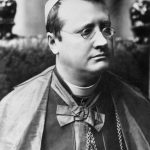
“Since my youth I have always felt the strongest desire to dedicate my life to the foreign Missions” wrote Conforti. Now, the Xaverian Missionaries, the Missionaries of Mary, and people in the Laity all offer their contribution to the proclamation of the Gospel.
On December 3, 1895, Fr. Guido Maria Conforti officially began his “daring undertaking,” to found a congregation having as its exclusive purpose “Mission.” It was then but a tiny seed planted in the soil of his native land. No one could bet on the harvest outcome.
St. Conforti’s Virtues: Why He is a Saint
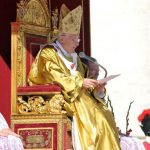
Pope Benedict XVI, in a Consistory of Cardinals of Feb. 21st, 2011, recognized the Virtues of Bishop Guido Maria Conforti. What does it mean? On October 23, 2011, Pope Benedict XVI canonized Guido Maria Conforti, offering him to the universal Church as a gift of the Spirit, as a model to imitate and as a new and living “parable” for our times. Why has the Church decided to propose him as a model to us, to bishops, priests and, indeed, all the faithful?
St. John XXIII on the Virtues of St. Conforti
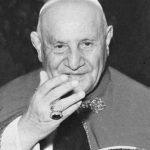
A lecture given by Angelo Carinal Roncalli, Patriarch of Venice (the future Pope John XXIII), at the Royal Theater of Parma (Italy), on the occasion of the 25th Anniversary of the death of the Servant of God, Guido Maria Conforti, founder of the Xaverian Missionaries.
Had I to choose a motto to summarize what I am about to say, I’d like to express it with the words: “One fold and one Shepherd.” All the pages of the Gospel are sacred and sparkling: but some concern especially the souls which accept their most intimate significance, and reveal them to the entire world in a more vivid and piercing light.
An Ordinary Living Image of Christ
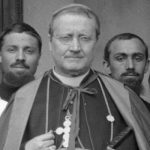
Brief characteristics of Bishop Conforti’s spirituality and guiding principles of his life as founder of the Xaverian missionaries, and bishop of the diocese of Parma, Italy.
It is extremely difficult to summarize in a few lines the characteristics of Guido Conforti’s spirituality, or adequately to express the guiding principles of his life. He was above all a man of faith. His faith in God was that of an exceedingly active man who saw Providence in every event of life. In the darkest moments, even when faith in himself wavered, he clung to his faith in God, and to the convection that Divine Providence was without limit.
A Much Needed Ecumenical Council
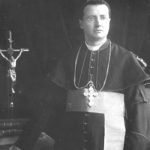
In a letter of 1925, Guido M. Conforti shares his opinions and encourages Pope Pius X to consider a possible Ecumenical Council for the Church. Could these dreams be prophetic, 60 years before the celebration of Vatican Council II?
Conforti’s deeds and activities were not only geared towards his soul or the vineyard given to him, but they reached out to the entire flock of Christ. No one can say that Conforti lived under the shadow of his Cathedral because of his spiritual shortsightedness. In his homilies and letters, he was not only concerned with Parma and his diocese, or with the entire Italian concerns of the Church. He was universal in his approach of ideas and practices.